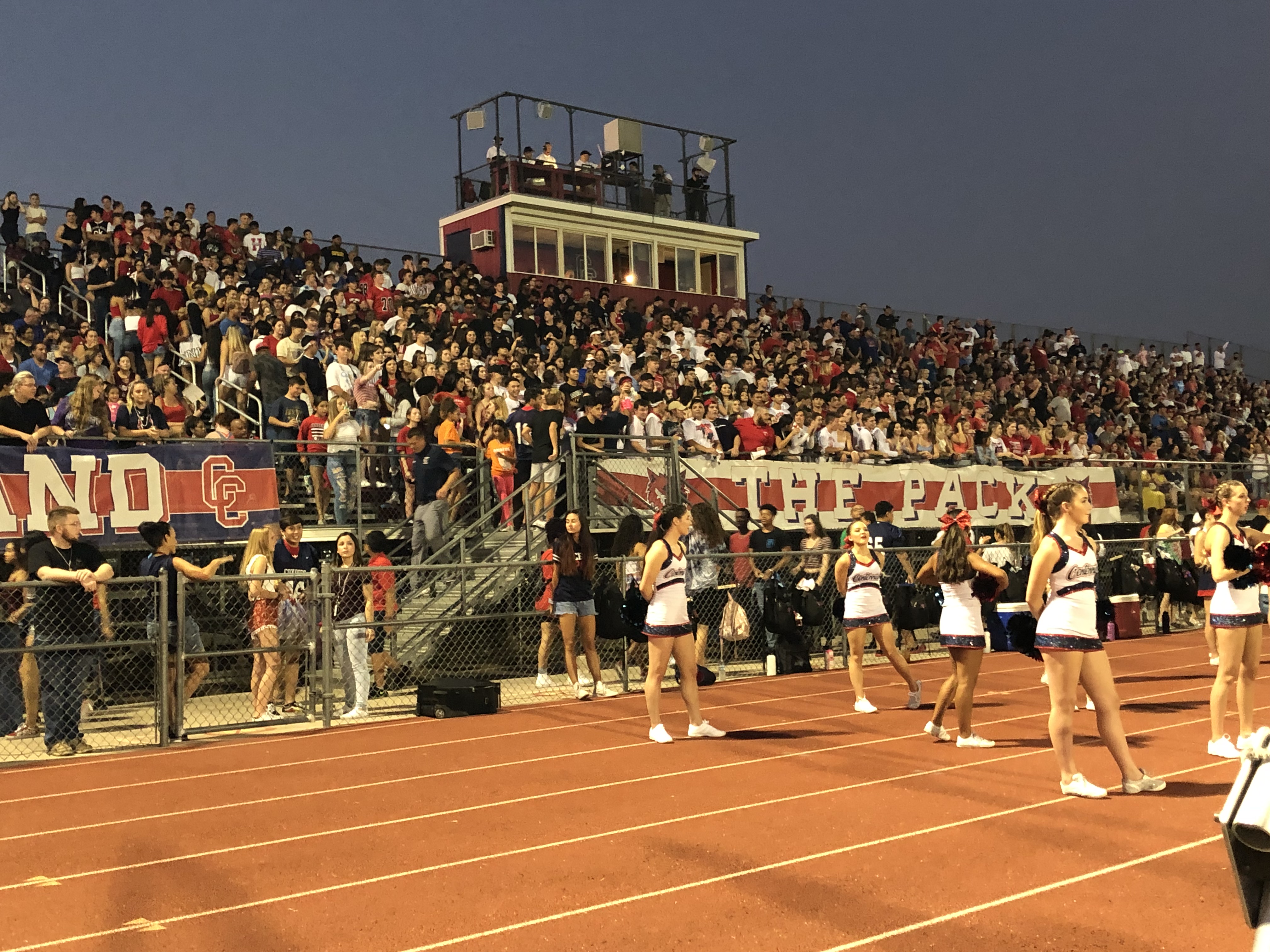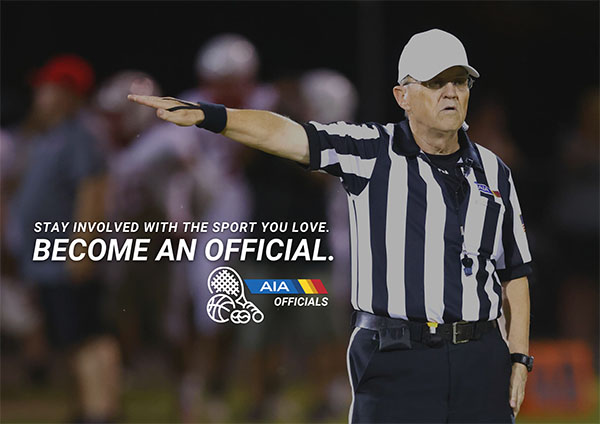A tale of two Taylors
December 4, 2019 by Evan Masters, Arizona State University

Evan Masters is an ASU Cronkite School of Journalism student assigned to cover Centennial High School for AZPreps365.com
In 2000 Centennial football was in a rut. After making the playoffs in 1997, the Coyotes hit a low of a one-win season in 1999.
The football program, formed in 1992, was not even 10 years old at this point. The lack of success for Centennial’s first and only head coach Richard Taylor was not promising heading into the new millennium.
Over 1,100 miles away in Tulsa, Oklahoma was Andrew Taylor, Richard’s son and a recent graduate of the University of Tulsa.
Andrew wanted to find a job at a high school where he could coach football and teach history. Andrew had his pickings all across Oklahoma, but something drew him home to Arizona. “I knew how hard my dad was working and that if there was someone else there could help him, the team could get a lot better and I know that was his goal.”
Richard did not expect Andrew to come home, or even for him to coach. “I always thought he was going to be an architect."
Andrew was first hired as a defensive assistant before he was promoted to defensive coordinator after the previous coach left a couple of months before the 2000 season.
While he was not the architect that his father thought he would be, Andrew constructed a defense and designed an offseason training program that helped Centennial become a state powerhouse with 18 straight postseason appearances starting in 2002, seven of which led to state championships.
The father-son coaching bond began with Andrew watching his father coach at Western Reserve High School, a small school in Northern Ohio, about an hour southwest of Cleveland.
“I remember going to his high school games when I was 4 or 5, my mom would take me to his games and his practices,” said Andrew. “When we couldn’t go to the games there was a radio station that broadcasted a lot of the high school games, so I always listened.”
Richard remembers watching film with his son. “He would be asking questions like, ‘Why are they doing that?’ and ‘Why did you do that?’ "
And it wasn’t watching his dad coach high school football. Andrew got a taste of his father’s coaching through youth football and Little League baseball.
“My dad always got involved as a coach sometimes as the main coach,” said Andrew. “I’m still not sure how he did that.”
Richard said it was a great to bond together. “Working for that common goal and it’s a great way to teach lessons such as things not always going your way, hard work pays off eventually and teamwork.”
Richard then became the first ever football coach at Centennial high school in 1990 with the first varsity season taking place in 1992. Andrew still watched his father coach and continued to play football for his father in high school.
At the time, Richard largely dealt with the offense and Andrew was a defensive player, so their interactions were minimal.
“In practice and games, he usually just ignored me, which I think is what I asked him to do,” said Andrew. “Then after the game or after practice at home he would then give me some pointers.”
Richard added “Even by his sophomore year a lot of kids on the team didn’t even know he was my son.”
Andrew was also not the biggest player on the field when he first got to Centennial as a freshman weighing at about 120 pounds according to his father.
Andrew asked his father what he had to do to show improvement. He was told to get bigger, faster and stronger.
Andrew had weights at home kept progress of his weight every day.
“He is very meticulous about the things he really cares about,” said Richard. “So, by the time he was a senior he was over 200 pounds playing safety for us.”
Andrew continued his football playing career at Glendale Community College before transferring to the University at Tulsa.
The transition from player to coach was initially a challenge. Players he coached were about five years younger.
“He knew some of those kids, or at least they remembered him,” said Richard. “It’s always difficult when you first start coaching especially when you are so close to their age.”
But what was most challenging for Taylor in his younger days was the realization that football does not always come first for a lot of people.
“There were a sizable portion of the guys on the team at the time where football was more of a hobby than a passion,” said Andrew. “It was a little hard for me to deal with that at first.”
Andrew developed as a coach. “I got to experience a lot of different positions and playing and learning different areas of the field as well as interacting with different coaches.”
The establishment of a consistent weights program propelled the football team.
“He made us better immediately,” said Richard. “He’s a very hard worker and it shows when he first ran the weight program for us and then took it over.”
Little by little Centennial improved. In 2002 the Coyotes reached the playoffs for the first time since 1997. In 2005 the Coyotes made their first championship appearance but lost to North Canyon.
The Taylor-led Coyotes reached the state championship in 2006, this time defeating Tucson Sunnyside 34-0, one of the few shutouts in Arizona football state championship history.
Father and son have fond memories of that first championship.
“When that trophy come over and was handed to my dad he choked up and teared up, which is pretty rare,” said Andrew. “And to know that I had a big part in that moment, that is a kind of satisfaction that money can’t buy.”
Richard added, “To know my son has had a great deal to do with our success I’m very proud of that”
The Coyotes went on to win two more state championships in 2007 and 2008. The following decade saw four more state championships. Two pairs of back- to-back victories in 2014-2015 and 2017-2018.
The Taylor coaching duo disagrees little when it comes to coaching the team
“When he says something, I normally pay pretty close attention to it,” said Richard.
Andrew added, “My dad is the kind of head coach where he wants to trust the subordinate coaches and he gives them a lot of leeway.”
Their coaching styles are similar as well. Richard believes he sees a lot of his younger self in Andrew. “He is probably more intense than I am right now, but at his age I had the same kind of intensity”
One difference: Andrew’s attention to detail when it comes to game planning. “If we play somebody and he has 10 films on them, he’s going to watch every single play that they ran and make note of it on the scouting report,” said Richard.
The Coyotes look to continue the legacy of the Taylors into the 2020 season. Andrew is already starting weights with fellow assistant coach Ian Comes.
Richard plans to keep coaching for as long he can but every year, he always asks his son the same question. “Would you be ready to take over if I left?”
The answer has always been the same. “No, you keep going, I’ve got 20-30 years left of coaching.”
Richard believes one day that answer will change. “I would imagine someday he would say I think I’m ready.”


